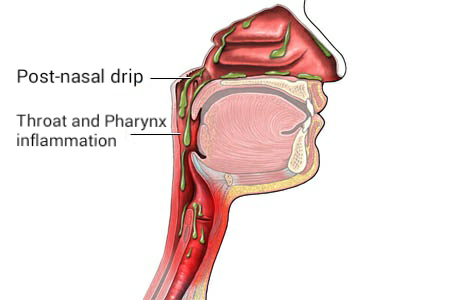Blue skies, warm breezes, and a Mediterranean climate are the blessings of Costa Blanca residents, who welcome visitors from around the globe. But for some, the very air that appears so inviting conceals an invisible health hazard—one that I am all too familiar with. I’m writing this not only as someone who lives, but also as a former singer who lost my voice, and thus my career, due to something many people have never heard of: post-nasal drip.
What is postnasal drip? Post-nasal drip occurs when excess mucus accumulates in the back of your throat, which is often caused by allergies, sinus issues, or weather changes. Do you constantly need to clear your throat? Do you have a persistent tickle? A hoarse voice, a sore throat, or a persistent cough? All of these could be signs. It isn’t just a seasonal annoyance; it can have long-term consequences.
I wasn’t aware of this at the time.
What began as a bit of throat clearing and a hoarse voice evolved into something much more serious. I brushed it off, blaming it on the air conditioning, pollen, or simply fatigue from singing. But the problem persisted, and I had no idea I was dealing with postnasal drip. Because I ignored it for so long, the constant irritation developed into chronic laryngitis—an inflammation of the vocal cords that eventually took away my singing voice completely.

I spent months going back and forth to ENT appointments, desperate for answers. I had a nasal endoscopy, in which a thin tube with a camera is passed through the nose to examine the throat and vocal cords. It’s uncomfortable, but it finally provided the answers I needed. The postnasal drip was identified as the underlying cause, and with proper treatment, I gradually recovered. Within a few months, I was able to speak normally again, albeit with a slight break in certain vowel sounds. Now, after nearly two years away from my singing career, I am finally ready to begin retraining my voice. The damage was severe, but I am much more self-aware now. I’m aware of my triggers, I listen to my body, and I know how to protect my voice going forward.
In the summer, the heat and humidity on the Costa Blanca can exacerbate post-nasal drip. Air conditioners dry out the air and our sinuses, causing the body to produce even more mucus. The abrupt transition between hot outdoor temperatures and cold, dry indoor air irritates the throat and nasal passages even further.
Pollen counts rise during the summer months, particularly from grass and weeds, causing many people to develop allergies. Even if you don’t have a diagnosed allergy, mild sensitivities can develop gradually—and silently—over time, especially after moving to a different climate, such as the one here on the Costa Blanca.

What are the signs to look for? If you’re experiencing any of the following symptoms regularly, don’t ignore them.
- Constant throat clearing
- Chronic cough
- Hoarseness or voice loss
- A sore or scratchy throat
- A lump-like feeling in your throat
- Bad breath (less common)
These aren’t just “summer” or allergy symptoms; they could indicate that post-nasal drip is affecting your voice and health. Left untreated, as in my case, it can cause long-term damage, such as chronic laryngitis.
What can you do now? Now that I know what I know, I encourage anyone to take these steps.
- Stay well-hydrated—especially in the heat. Water thins mucus and soothes the throat.
- Use a humidifier indoors – to counteract the dry effects of air conditioning and fans.
- Try saline nasal sprays or rinses—they can help flush out allergens and irritants.
- Get allergy tested—even mild allergies can cause major issues over time.
- Avoid irritants like smoke and strong perfumes—they worsen inflammation
- Consult an ENT specialist—especially if your voice has been hoarse for more than a few weeks.
Losing my voice meant more than just not being able to sing; it felt like I was losing a part of myself. And what made matters worse was that it could have been avoided. If I’d known about post-nasal drip and its link to chronic laryngitis, I could have taken action sooner. I want others, particularly singers, speakers, teachers, and anyone who relies on their voice, to be aware of this hidden condition.
The Costa Blanca is a lovely place to live, but the weather and seasonal changes pose minor risks to respiratory and vocal health. Don’t ignore the signs. Listen to your voice; it might be telling you something important.









No Comment! Be the first one.